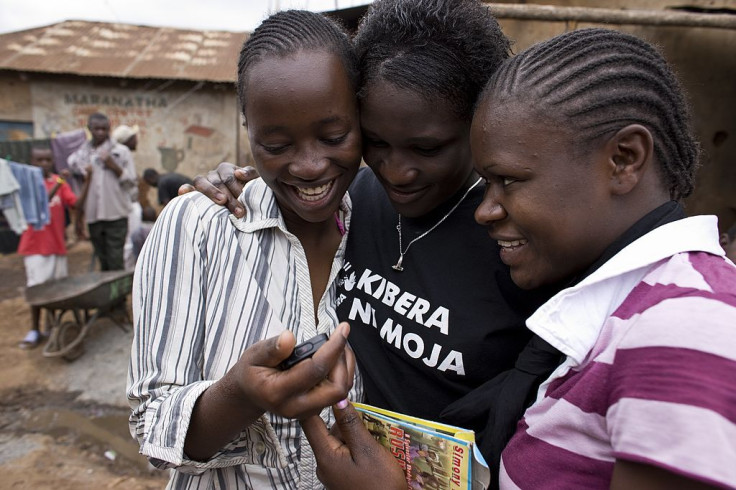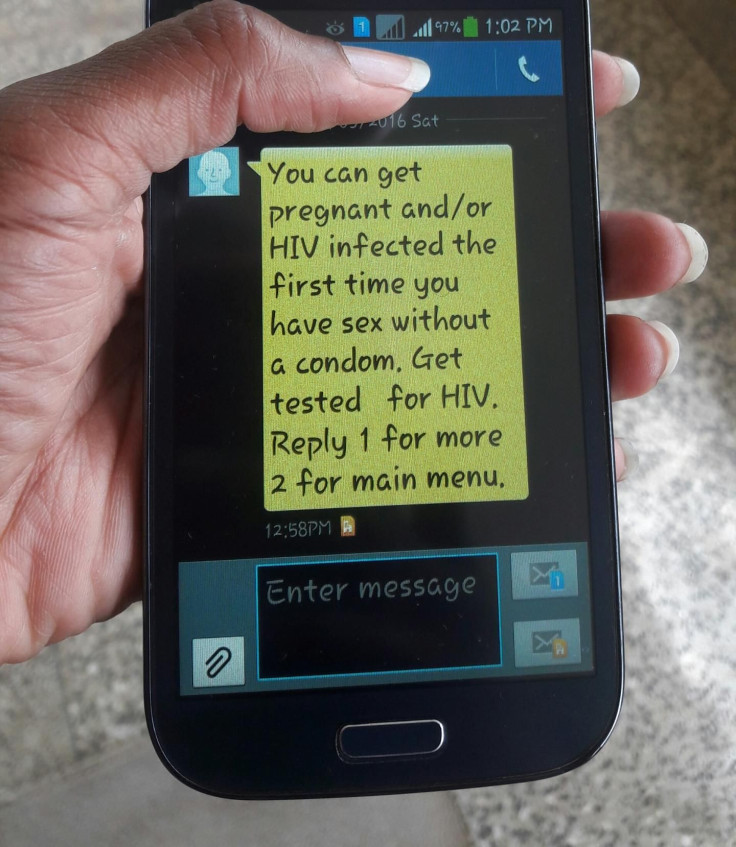Young Women In Kenya More Likely To Get Tested For HIV When Sent Weekly Texts About Sexual Health

Text messages have revolutionized the way we interact with each other — and the way we receive and practice health care may be next.
For years, studies have considered text message reminders a way to improve everything from uptake of the flu vaccine and breast cancer screenings to reducing the number of people who end up in the emergency room after a night of binge drinking. The latest research proves they can also increase the rate of HIV testing among the groups who are more vulnerable to infection; in this particular case, young women living in rural Africa.
Researchers enrolled 600 students aged 18 to 24 from four colleges in rural central Kenya. Half of these women received weekly texts not just about HIV, but also pregnancy, contraceptives, other sexually transmitted diseases, condoms, and oral sex; the other half did not. Both groups, however, were surveyed monthly about their HIV testing and sexual behavior, as well as their perceived HIV risk or status. All of the women were either uninfected by HIV or were not aware they had been infected.
Within six months of the last message, roughly two-thirds of women in the text messaging group had gone for HIV testing compared to roughly half of those in the control group. And when women in the message group were given the option to receive an additional three texts each week, at least 60 percent opted in.
“Text messages in Kenya translate to a lot of people,” lead study author Dr. Njambi Njugana, of Kenyatta National Hospital in Nairobi, told Medical Daily. “[Overall], we had a more than 90 percent response rate, with women often responding through text.”

This includes health care workers, too. In 2011, the Kenya Medical Research Institute (KEMRI)-Wellcome Trust Research Programme in Nairobi published results of a study that found twice-daily text message reminders helped workers better adhere to national malaria treatment guidelines. They received information regarding good practice — “Check ALL sick children <5yrs for any severe signs! Also check for fever, cough, diarrhea, pallor & any other problem” — and an inspirational quote — “Persistent work triumphs.”
“This trial, the first one using text-messaging to target health workers' behaviour in developing countries, has shown that a simple intervention … can improve health workers’ adherence to malaria treatment guidelines by 25 [percent],” lead study author Dr. Dejan Zurovac said at the time. “Text-messaging should complement traditional approaches to support clinical management such as in-service training of health workers, supportive supervision, or dissemination of job aids."
Njugana and her team chose to conduct their experiment over text as opposed to, say, email or social media because 83 percent of Kenyans use mobile phones. And in a global survey from the Pew Research Center, investigators found 78 percent of mobile phone owners in emerging countries used their devices for texting. In 14 of 24 surveyed nations, it was especially common among 18 to 29 year olds — the ages of those most at risk in Kenya. The results of Njugana’s study, then, show there’s a unique opportunity to get health care information to those who need it most.
The study is the first phase of a larger effort to improve HIV prevention by Grand Challenges Canada, funded by the Canadian government. Now that they have proof of concept, Njugana and her team will check the robustness of the data in a different set of young women — still in Kenya, but in a different, western location. From there they hope to incrementally increase their sample size until it reaches 10,000 over the next few years.
By 2020, the Joint United Nations Programme on HIV/AIDS wants 90 percent of people living with HIV to know their status, to receive treatment, and to have suppressed viral loads. They also want to empower 90 percent of young people with the skills, knowledge, and capability to protect themselves from HIV and other designated diseases. Njugana believes text messaging would be a cheap way to aid the global effort to drive down the prevalence of HIV.
Source: Njuguna N, et al. The Effect of Human Immunodeficiency Virus Prevention and Reproductive Health Text Messages on Human Immunodeficiency Virus Testing Among Young Women in Rural Kenya: A Pilot Study. Sexually Transmitted Diseases. 2016.



























